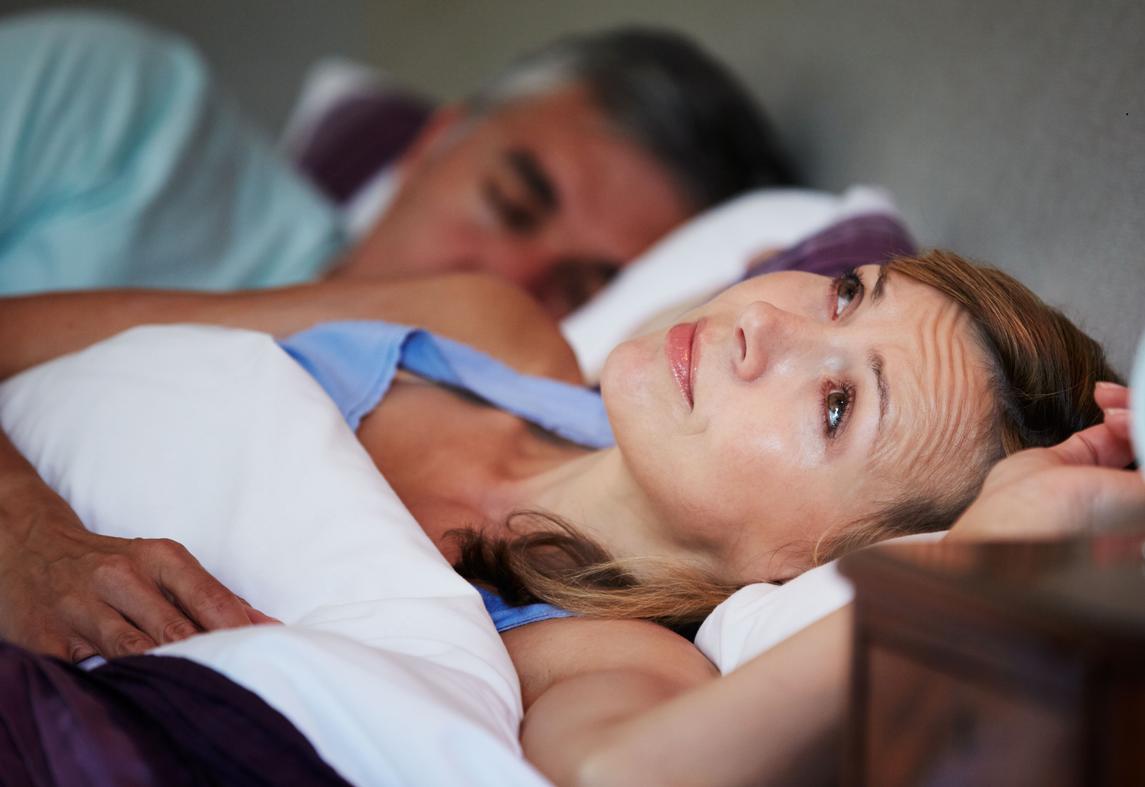Menopause can bring a host of changes, and sleep disturbances are among the most common complaints during this transition. As hormone levels fluctuate, many women experience issues such as insomnia, night sweats, and disrupted sleep cycles.
Fortunately, there are steps you can take to improve your sleep during menopause and regain the rest you need to feel refreshed.
Today, we are going to show you how menopause impacts sleep and also provide practical strategies to help you sleep better. Whether you’re dealing with hot flashes or just struggling to relax at night, these tips can make a real difference in your life.
The Link Between Menopause and Sleep
1. Hormonal Changes and Sleep Disruption
One of the primary reasons women experience sleep difficulties during menopause is the drop in estrogen and progesterone levels. These hormones play a crucial role in regulating the body’s sleep-wake cycle.
Recommended: Does Ovulation Make You Sleepy?
Estrogen helps maintain a stable body temperature and supports serotonin production, which promotes relaxation. When levels decline, you may experience hot flashes, night sweats, and increased anxiety – all factors that can interrupt sleep.
Progesterone, often referred to as a “natural sleep aid,” decreases during menopause, contributing to insomnia and fragmented sleep. Without adequate amounts of these hormones, staying asleep through the night becomes more challenging.
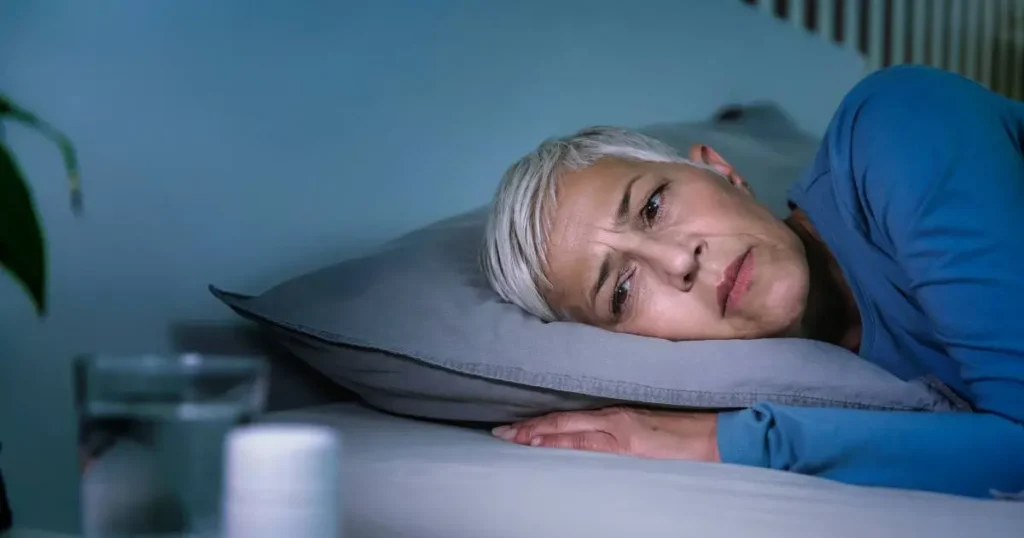
2. Stress and Anxiety During Menopause
In addition to hormonal shifts, stress and anxiety often increase during menopause. Many women face new life changes, such as aging, career transitions, or family dynamics, which can elevate cortisol levels.
High cortisol not only makes it harder to fall asleep but can also keep you awake during the night.
Top 7 Tips for Better Sleep During Menopause
1. Create a Cool and Comfortable Sleeping Environment
A comfortable sleeping environment is essential for better rest, especially during menopause, when hot flashes and night sweats are common.
Start by keeping your bedroom cool – around 60-67°F (15-19°C) is ideal for sleep. Invest in breathable bedding made from natural fibers like cotton, bamboo, or linen that wick moisture away and help regulate body temperature.
Use a fan or open a window for airflow, and consider cooling pillows or a mattress with temperature regulation technology. Light, moisture-wicking pajamas can also help you stay comfortable through the night.
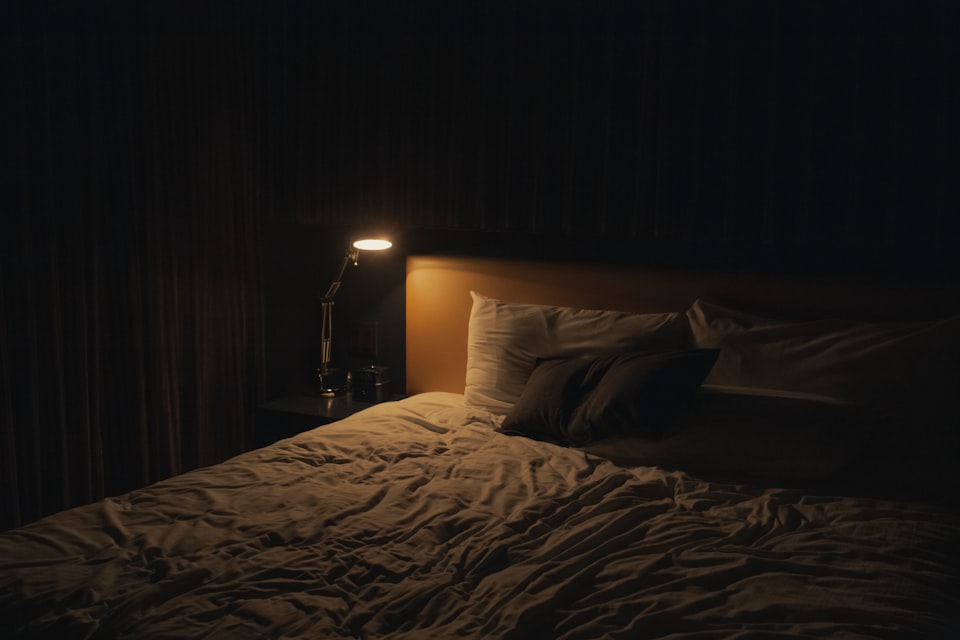
2. Establish a Relaxing Bedtime Routine
Creating a consistent bedtime routine is key to signaling your body that it’s time to wind down. Avoid stimulating activities like checking emails or watching TV an hour before bed. Instead, focus on relaxation techniques, such as:
- Reading: Choose a calming book.
- Deep Breathing: Practice slow, deep breathing exercises to calm your nervous system.
- A Warm Bath: Soaking in a warm bath before bed can relax your muscles and lower your core body temperature, making it easier to fall asleep.
You may also want to explore mindfulness meditation, which has been shown to reduce stress and improve sleep quality.
3. Limit Stimulants and Alcohol
Caffeine, nicotine, and alcohol can significantly disrupt sleep patterns, especially if consumed later in the day. Caffeine blocks adenosine, a neurotransmitter that promotes sleep, while alcohol may initially make you feel sleepy but can cause you to wake up frequently during the night as your body metabolizes it.
Try to limit your intake of these substances in the afternoon and evening. Instead, opt for herbal teas like chamomile, valerian root, or lavender, which have calming properties and can promote relaxation before bedtime.
4. Stay Active During the Day
Regular physical activity can promote better sleep by reducing stress and helping regulate your body’s natural sleep-wake cycle. Aim for at least 30 minutes of moderate exercise most days of the week.
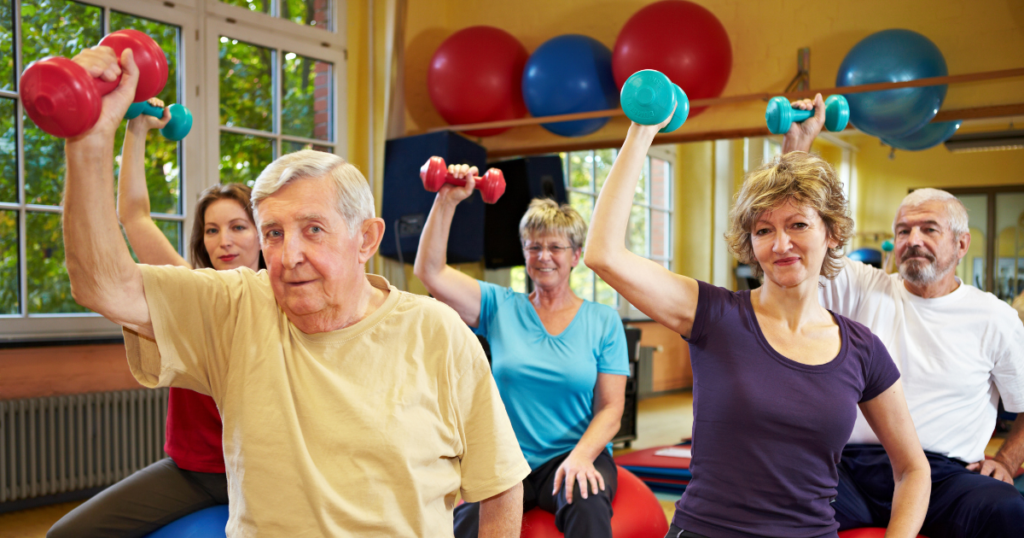
Whether it’s walking, swimming, or yoga, staying active can improve your mood, help manage weight, and reduce the intensity of menopausal symptoms like hot flashes.
Be mindful not to exercise too close to bedtime, as the adrenaline boost from intense workouts can make it harder to fall asleep. Ideally, try to finish exercising at least three hours before going to bed.
5. Manage Hot Flashes and Night Sweats
Hot flashes and night sweats are major sleep disruptors during menopause, but there are ways to manage them. Aside from maintaining a cool sleep environment, you can reduce the frequency and intensity of hot flashes by avoiding triggers like spicy foods, caffeine, and alcohol.
Wearing layered clothing during the day can help you quickly adjust when hot flashes strike.
Hormone replacement therapy (HRT) is also an option for managing more severe symptoms, but it’s important to discuss the risks and benefits with your healthcare provider to determine if it’s right for you.
6. Try Natural Sleep Aids and Supplements
Certain natural supplements can help ease menopause-related sleep problems. Some popular options include:
- Melatonin: A hormone that regulates sleep cycles, melatonin can be especially helpful for women experiencing insomnia during menopause. Taking a low-dose supplement 30 minutes before bed can promote restful sleep.
- Magnesium: Known for its calming properties, magnesium can help relax muscles and ease anxiety, making it easier to fall asleep.
- Valerian Root: Valerian root is a herbal remedy that has been used for centuries to promote relaxation and improve sleep quality.
Always consult with your doctor before starting any supplements to ensure they are safe and appropriate for your needs.
7. Practice Mindfulness and Relaxation Techniques
Stress and anxiety are common during menopause, and they can prevent you from getting the rest you need. Practicing mindfulness techniques, such as progressive muscle relaxation or guided imagery, can help you let go of anxious thoughts and focus on the present.
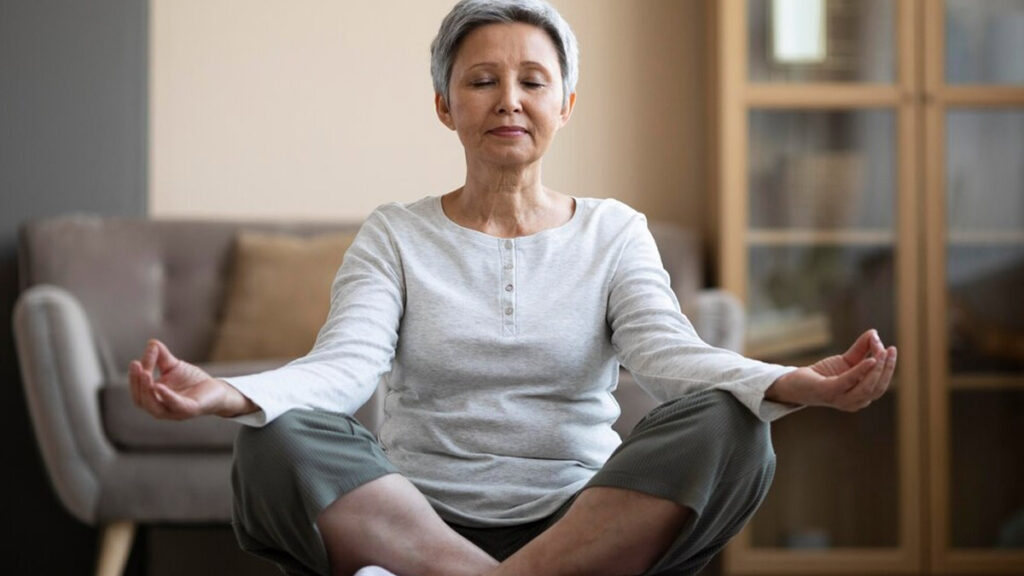
Yoga and tai chi are also great options, as they combine physical movement with deep breathing and meditation. These practices have been shown to reduce stress, improve sleep quality, and alleviate some menopausal symptoms like mood swings and hot flashes.
When to Seek Professional Help
If lifestyle changes and relaxation techniques aren’t enough to improve your sleep, consider talking to a healthcare professional about Cognitive Behavioral Therapy for Insomnia (CBT-I).
This therapy focuses on identifying and changing negative thoughts and behaviors that contribute to insomnia. Studies have shown that CBT-I can be highly effective for managing sleep disturbances, even for women going through menopause.
In some cases, hormone replacement therapy (HRT) may be recommended to manage severe menopausal symptoms, including sleep issues. While HRT can help reduce hot flashes, night sweats, and mood swings, it’s important to weigh the potential risks, such as an increased risk of blood clots, stroke, and certain types of cancer. Your doctor can help you determine if HRT is a good option for your specific situation.
Conclusion
Sleeping better during menopause is possible with the right strategies and lifestyle changes. By managing stress, establishing a calming bedtime routine, and making your sleep environment more comfortable, you can improve your chances of getting the rest you need.
While some challenges like hot flashes may persist, natural remedies and professional support can help you navigate this transition and improve your overall well-being.
Getting enough sleep isn’t just about feeling rested – it’s essential for your mental and physical health, especially during menopause. Implement these tips and take control of your sleep for a more energized and balanced life.
